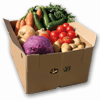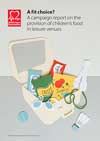Welcome to the Food Commission Website
From 2011, the Food Commission has been a virtual organisation with a website and email address maintained by volunteers and supported by donations and by the Food Commission Research Charity, and occasional grant-funded projects. The Food Magazine archives and Food Commission reports are available for free public access and paper copies are also housed at the British Library and the Wellcome Trust Collection. Bookmark this site!
In 2010, The Food Magazine ceased publication in paper format. The issues that the Food Commission and The Food Magazine have investigated and reported on are important. Our many supporters over the years have understood and valued our independence and our advocacy work, for which we are well-known. There is a continuing need for scrutiny of the activities of the food industry and for campaigns for healthier diets affordable to all.
We greatly appreciate the support our subscribers and other supporters have given to us over the years, and we hope you will continue to support us in these endeavours. Should you be able to help us further, please get in contact.

Tree foods in Africa
In Britain, most people’s idea of a tree food would be an apple or perhaps hazelnuts, but for many people living in Africa, tree foods can mean the difference between life and death...
Nanofoods
‘Nanotechnologies’ are technologies that involve the manipulation of matter at the atomic and molecular level.
Minimum needs, minimum carbon?
Exploring the carbon footprint of minimum income diets. Current lifestyles in the UK are unsustainable and policy-makers are struggling to find ways to shift society to lower carbon modes of living.
Cuba's food production revolution
Since the 2006 film directed by Faith Morgan, “The Power of Community: How Cuba survived peak oil,” Cuba has been heralded as an example of how to respond to a sudden and severe shortage of resources.
Baby Milk Action
Nestlé is one of the four most boycotted companies on the planet and the most boycotted in the UK because of the way it pushes its baby milk, a problem that continues to this day despite the significant gains achieved by the campaign...
Plan B - a different food system is possible
Plan B organic farm is less than an hour’s drive from the centre of metropolitan Toronto. As its name implies, it intends to be around when everyone understands that Plan A is failing.Fishy business
The Food Magazine investigates omega-3 fatty acids in your diet
A farmer's diary - opening salvo - Farming v.2.0
Our new farming columnist Tim Waygood with a talk on the wildside…
The Battle for good food at the 2012 Olympics
London Assembly Member Jenny Jones, of the Green Party, worries that the Olympics will be a festival of sport, and junk food…European Food Safety Authority lowers acceptable daily intake for three of the Southampton six
EFSA's scientific panel on additives, the ANS Panel, has lowered the Acceptable Daily Intakes (ADIs) for three of the six artificial food colours linked to increased hyperactivity in children
New Food Commission report on children's food in leisure venues
Food Commission report on children's food in leisure venues by Anna Glayzer and Jessica Mitchell for the BHF.
Big Screen junk food and booze bonanza
A new survey by The Food Commission reveals how children’s films with ratings as young as U and 12A carry adverts for foods that would not be permitted between children’s television adverts; and for booze.
Chuck snacks off the checkout
Food Commission researchers found that despite pledges to the contrary, many major retailers continue to harness pester power by loading checkouts with high fat, salt and sugar foods. 28 stores belonging to 7 major retailers were surveyed.


